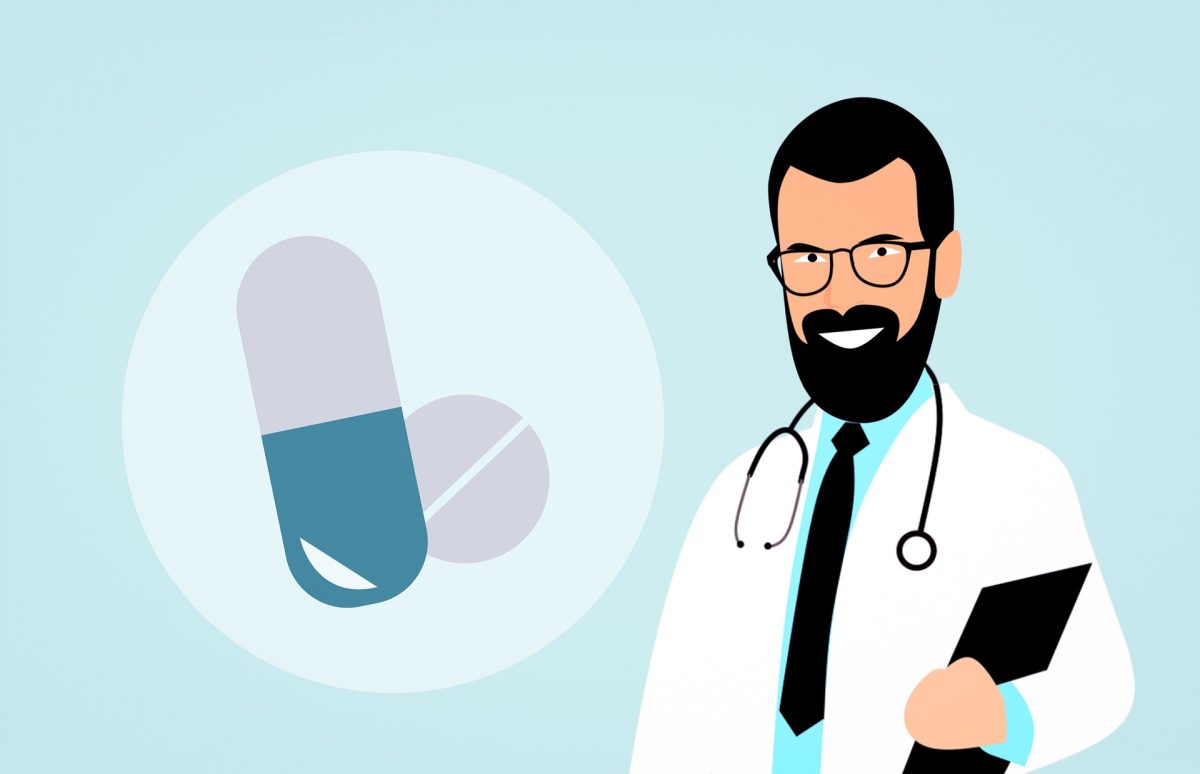Governor Murphy’s Legislative Actions Against the Opioid Crisis in New Jersey
The opioid epidemic has been a persistent crisis in the United States for over two decades, and New Jersey has not been exempt from its devastating effects. Thousands of residents have fallen victim to addiction, and families have been torn apart by the scourge of opioid misuse. However, Governor Phil Murphy’s administration has been at the forefront of efforts to combat this growing public health crisis through legislative action and innovative programs. This blog explores Governor Murphy’s legislative initiatives aimed at addressing the opioid crisis in New Jersey.
Medicaid Rehab in New Jersey: A Comprehensive Guide
Medicaid provides essential health coverage for millions of Americans, including those in New Jersey. For individuals struggling with substance use disorders or mental health challenges, medicaid rehab nj offers access to rehabilitation programs that can be life-changing. In this article, we’ll explore the availability of Medicaid-covered rehab services in New Jersey, the types of treatments offered, and how to navigate the system to get the help you or your loved ones need.
Understanding the Opioid Crisis in New Jersey
Before delving into the specific legislative measures taken by Governor Murphy, it is important to understand the scope of the opioid crisis in New Jersey. According to the New Jersey Division of Mental Health and Addiction Services (DMHAS), the state has seen a dramatic increase in opioid-related overdoses and deaths over the past decade. In 2022 alone, over 3,000 people in New Jersey died from drug overdoses, with opioids—particularly fentanyl—being the leading cause.
The widespread misuse of prescription painkillers, heroin, and fentanyl has overwhelmed communities and health systems, leading to a public health emergency that requires immediate action. Recognizing this urgent need, Governor Murphy has taken bold steps to address the crisis through various legislative efforts, focused not only on providing treatment and recovery resources but also on prevention, law enforcement, and harm reduction strategies.
Governor Murphy’s Key Legislative Actions
- Opioid Addiction Treatment and Recovery Funding
Governor Murphy has championed a comprehensive approach to addressing the opioid epidemic, which includes substantial investments in treatment and recovery services. One of his key actions was the signing of legislation that allocated significant funds to improve access to addiction treatment services across New Jersey.
Through the New Jersey Opioid Recovery and Remediation Fund, Murphy’s administration ensures that funds from opioid manufacturers and distributors—who have been held accountable for their roles in the epidemic—are reinvested into the state’s addiction treatment and recovery infrastructure. This funding supports the expansion of programs like residential treatment centers, outpatient services, and recovery support services.
Additionally, the Murphy administration has worked to enhance access to medication-assisted treatment (MAT), which has proven effective in helping individuals struggling with opioid addiction. By increasing funding for MAT programs and improving insurance coverage for these services, New Jersey is providing more opportunities for individuals to receive the care they need.
- Comprehensive Prescription Drug Monitoring Program
To combat the over-prescription of opioids, Governor Murphy’s administration has strengthened New Jersey’s Prescription Monitoring Program (PMP). The PMP allows healthcare providers to track and monitor prescriptions for controlled substances, helping to identify potentially harmful prescribing patterns.
In 2020, Murphy signed legislation that expanded the reach of the PMP, requiring doctors and pharmacists to check the database before prescribing opioids and other potentially addictive medications. This move is designed to reduce “doctor shopping” and curb the misuse of prescription opioids, which is often the first step in the progression of opioid addiction.
- Limiting Opioid Prescriptions
Another significant action taken by Governor Murphy was the signing of a law that limits the number of opioid pills that can be prescribed to patients. In 2019, the state passed legislation capping initial opioid prescriptions for acute pain to a seven-day supply. This measure aims to reduce the likelihood of individuals becoming dependent on opioids after being prescribed for legitimate medical purposes.
This move is supported by studies that suggest shorter prescription durations help reduce the risk of addiction, as people are less likely to develop long-term dependencies if they do not have access to large quantities of pain medication. The law also mandates that healthcare providers offer alternative pain management options, including non-opioid therapies, whenever possible.
- Harm Reduction Initiatives
New Jersey has adopted harm reduction strategies as a key component of its response to the opioid crisis. One such initiative is the implementation of supervised needle exchange programs. These programs are designed to reduce the spread of infectious diseases, such as HIV and hepatitis, which are common among individuals who inject drugs.
Under Governor Murphy’s leadership, New Jersey has expanded access to harm reduction services, including syringe exchange programs and the distribution of naloxone (Narcan), a life-saving medication that can reverse opioid overdoses. The state has made naloxone widely available to first responders, family members, and individuals in recovery, helping to save lives and prevent overdose deaths.
- Expanding Access to Treatment for Incarcerated Individuals
The opioid crisis is also deeply tied to the criminal justice system, with many individuals incarcerated for drug-related offenses struggling with opioid addiction. Governor Murphy has worked to expand access to addiction treatment for individuals in New Jersey’s correctional facilities.
In 2020, he signed a law requiring that all state prisons and jails offer opioid use disorder treatment programs to incarcerated individuals. This legislation ensures that individuals who are incarcerated have access to MAT and other addiction treatment services, providing them with the tools they need for recovery upon release. This initiative is part of Murphy’s broader efforts to reduce recidivism and support successful reintegration into society.
- Public Awareness Campaigns
Governor Murphy has also supported public awareness campaigns aimed at educating residents about the dangers of opioid misuse and promoting safe medication disposal. The state has partnered with local organizations to hold events and provide educational resources on the risks of opioid addiction and how to safely dispose of unused medications.
These efforts are designed to reduce the number of unused prescriptions in circulation, which can be misused by individuals in the community. Public awareness campaigns also focus on de-stigmatizing addiction and encouraging individuals to seek help before their substance use spirals out of control.
Looking Ahead: The Fight is Far from Over
While Governor Murphy’s legislative actions have made a significant impact in the fight against the opioid crisis in New Jersey, the battle is far from over. The opioid epidemic continues to evolve, with fentanyl emerging as a particularly deadly threat. Governor Murphy has indicated that his administration will continue to prioritize efforts to reduce overdose deaths and expand access to treatment and harm reduction services.
In the coming years, the focus will likely shift toward more targeted interventions, including efforts to address the growing role of fentanyl in overdose deaths, as well as expanding access to recovery housing and employment programs for individuals in long-term recovery. Governor Murphy’s commitment to tackling the opioid crisis in New Jersey is unwavering, and his leadership has set the stage for continued progress in reducing the harm caused by opioid addiction.
Comprehensive Guide to BCBS of NJ: What You Need to Know
Navigating health insurance can be challenging, but understanding your options is the first step toward ensuring you and your family are covered. Blue Cross Blue Shield of New Jersey (BCBS of NJ) offers a range of health insurance plans tailored to meet the diverse needs of New Jersey residents. Whether you’re looking for individual coverage, family plans, or employee benefits, BCBS of NJ has something to offer. In this guide, we’ll explore key aspects of BCBS of NJ and how it can benefit you.
Conclusion
Governor Murphy’s legislative actions against the opioid crisis in New Jersey reflect a comprehensive approach to a complex issue. By combining funding for treatment programs, strengthening prescription monitoring, expanding harm reduction strategies, and improving public awareness, New Jersey is making strides toward ending the opioid epidemic. While the work is far from complete, the steps taken thus far under Governor Murphy’s leadership provide hope for those affected by addiction and a model for other states grappling with this national crisis.



